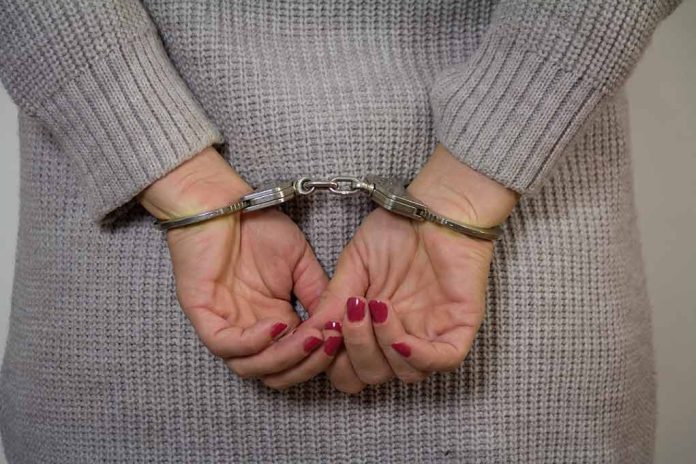
The case of Priscilla Villarreal, a Texas journalist jailed due to her work, raises critical questions about the future of press freedom.
At a Glance
- Priscilla Villarreal, an independent journalist, faces First Amendment battles after her arrest in 2017.
- The U.S. Court of Appeals for the 5th Circuit ruled 9-7 against Villarreal’s First Amendment claim.
- The Supreme Court is being urged to hear her case by numerous media organizations and civil liberties groups.
- This case could significantly impact the safety and freedom of journalists across the nation.
The Arrest and Charges
Priscilla Villarreal, operating independently through her Facebook page “Lagordiloca,” was arrested in 2017 under a rarely used Texas statute after reporting on two stories. The law criminalizes soliciting nonpublic details for personal benefit. Villarreal, having over 217,000 followers, often livestreams her news reports from Laredo, Texas.
This arrest sparked major legal confrontations, as Villarreal considers herself a citizen journalist free from traditional media constraints. The case quickly became a First Amendment battle, as media organizations rallied to support her right to report.
A Texas reporter who was arrested for asking questions asks SCOTUS to reject the criminalization of journalism. https://t.co/ytgR0NwQdc
— reason (@reason) April 26, 2024
Court Battles and the Supreme Court
The U.S. Court of Appeals for the 5th Circuit’s 9-7 decision against Villarreal highlights the divided views on the First Amendment and press freedom. The dissenting judges argued that the decision undermines fundamental rights of free speech and the ability to gather and report news.
“If they can throw me in jail for asking a question, none of our free speech rights are safe,” said Priscilla Villarreal. “Our First Amendment rights don’t depend on our popularity with local politicians. My case is not just about me, but also the rights of every American.”
Several media organizations, including the Reporters Committee for Freedom of the Press, have filed amicus briefs urging the Supreme Court to hear her case. Over 40 individuals and groups have submitted 13 amicus briefs supporting her cause, emphasizing the importance of constitutional accountability.
Broader Implications for Free Press
Villarreal’s struggle illuminates broader issues surrounding press freedom and media safety today. Her case is not isolated, as similar incidents have occurred, including the 2019 arrest of Sylvia Gonzalez, a city council member in Castle Hills, Texas, seemingly retaliatory for criticizing a city manager. Gonzalez eventually won a First Amendment case at the U.S. Supreme Court.
“This has been a nightmare for the last five years. It has kept me up at night, but finally I can sleep knowing that the nightmare I’ve gone through will protect critics from retaliation in the future,” Gonzalez said in a statement.
As Villarreal’s case progresses, its outcome could set a precedent on how far government authorities can go in prosecuting journalists. This case exemplifies how essential it is to safeguard journalists to ensure that they can continue their vital role in a free society without fear of legal retribution.







